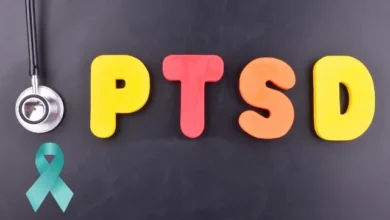Personality Disorders: Types, Causes, and Treatments
A Comprehensive Guide to Recognizing and Managing Personality Disorders
Every day, we encounter various types of people, each with unique characteristics. However, it can be challenging to distinguish between traits that indicate a healthy individual and those that suggest an unhealthy one. Today, we will delve into a different kind of issue: a mental health condition known as Personality Disorder. This topic is crucial, but before we explore personality disorders, it’s essential to understand what personality entails.
What is Personality?
Personality refers to an individual’s thought processes, emotions, and behavioral patterns, which distinguish one person from another. A person’s personality is influenced by their experiences, environment, and hereditary factors.
What is a Personality Disorder?
A personality disorder is a type of mental health condition where an individual’s thoughts, actions, and behaviors exhibit inflexible and unhealthy patterns. People with this disorder often struggle to understand situations, relate to others, and form relationships. This condition can limit their ability to function in social settings, at work, and even in school. Often, it may not be apparent that an individual has a personality disorder because their thoughts and behaviors might seem normal.
This condition can lead individuals to blame others easily for their problems, making it a complex issue. Personality disorders typically manifest during adolescence or early childhood and can cause significant impairment in functioning. Without treatment, these disorders can be long-lasting.
Types of Personality Disorders
1. Antisocial Personality Disorder
Individuals with antisocial personality disorder struggle to adhere to social norms. They frequently lie, deceive others, and consistently act against societal rules.
2. Avoidant Personality Disorder
This disorder is characterized by extreme shyness, feelings of inadequacy, and hypersensitivity to criticism. People with avoidant personality disorder often avoid social interactions and prefer to stay isolated.
3. Borderline Personality Disorder
Borderline personality disorder is marked by instability in personal relationships. Individuals with this disorder experience intense emotions, feelings of emptiness, and a fear of abandonment. They may engage in impulsive behaviors and have a history of suicidal attempts.
4. Dependent Personality Disorder
People with dependent personality disorder have difficulty making everyday decisions without relying on others. They fear being alone and may feel helpless when left to care for themselves.
5. Narcissistic Personality Disorder
Individuals with narcissistic personality disorder lack empathy for others. They exhibit a grandiose sense of self-importance, a need for admiration, and a sense of entitlement.
6. Paranoid Personality Disorder
Those with paranoid personality disorder often believe that others will harm or deceive them. This leads to a deep mistrust of others and a reluctance to form close relationships.
Causes of Personality Disorders
1. Genetic Factors
Certain personality traits can be inherited. If a parent has a personality disorder, there is a higher likelihood that their child may also develop it.
2. Environmental Factors
A person’s environment plays a significant role in their development. The events and interactions within their family and social circle can contribute to the development of a personality disorder. These disorders are believed to result from a combination of genetic and environmental influences.
While the exact causes of personality disorders are not fully understood, several factors are thought to contribute to their development:
- Family History: A history of personality disorders or other mental health issues in the family can increase the risk.
- Childhood Experiences: Traumatic, unstable, or chaotic family life during childhood can lead to the development of a personality disorder.
- Conduct Disorder: Diagnosis of conduct disorder in childhood can also be a contributing factor.
- Brain Chemistry and Structure: Differences in brain chemistry and structure may also play a role.
Can Personality Disorders Be Treated?
Yes, personality disorders can be treated. Various psychotherapies are effective in addressing personality-related issues. These therapies help individuals understand the impact of their behaviors on others and learn appropriate behaviors and social skills.
The type of treatment depends on the specific personality disorder, its severity, and the individual’s unique situation.
Conclusion
If you or someone you know exhibits symptoms of a personality disorder, it is crucial to seek medical help. Early intervention can prevent significant life disruptions caused by these disorders.
Stay healthy and take care of your mental well-being.
FAQs
What are the signs of a personality disorder?
Signs of a personality disorder can include:
- Difficulty understanding situations and relating to others.
- Inflexible and unhealthy patterns of thoughts and behaviors.
- Struggles in social settings, work, and school.
- Blaming others for personal problems.
Can personality disorders be cured?
While personality disorders cannot be “cured” in the traditional sense, they can be managed effectively with psychotherapy and, in some cases, medication. Treatment focuses on helping individuals understand and change their thought patterns and behaviors.
What causes personality disorders?
Personality disorders are thought to be caused by a combination of genetic and environmental factors. Family history, childhood experiences, and differences in brain chemistry and structure may all play a role.
How are personality disorders diagnosed?
Personality disorders are typically diagnosed through a psychological evaluation. A mental health professional will assess the individual’s thoughts, feelings, and behaviors to determine if they meet the criteria for a personality disorder.
What types of therapy are used to treat personality disorders?
Various types of therapy can be used to treat personality disorders, including:
- Cognitive-behavioral therapy (CBT)
- Dialectical behavior therapy (DBT)
- Psychodynamic therapy
- Interpersonal therapy
Can medication help with personality disorders?
Medication can be helpful in managing some symptoms of personality disorders, such as mood swings, anxiety, and impulsivity. However, medication is typically used in conjunction with psychotherapy for the best results.









